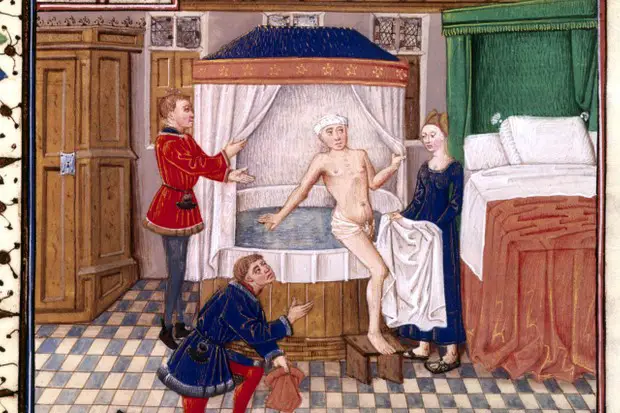 ygiene is one of the most important things to look after, something that we have lately been very much reminded of by the pandemic, but this is something that wasn’t paid very much attention to in the past, especially in the Medieval era where the average citizen would wash more often than royalties.
ygiene is one of the most important things to look after, something that we have lately been very much reminded of by the pandemic, but this is something that wasn’t paid very much attention to in the past, especially in the Medieval era where the average citizen would wash more often than royalties.
Hygiene in the Medieval era
Some historians argue that people around the world were much cleaner during the Roman era compared to the Medieval era. Many pandemics and epidemics took place within the Medieval era, and funny enough, people were not washing as often even if they knew that, at their time, hygiene was the best weapon in combating such diseases.
Bathing is considered to be the oldest form of washing as this was the easiest and most accessible form of cleansing the body. Only the very rich were able to afford personal baths, whilst most people would boil water in their cooking cauldron and wash or swim in any freshwaters around them.
Some historians even argue that Europeans only started bathing more frequently due to the influence from the ottoman empire who were quite serious when it came to hygiene. We understand that most people within Medieval Europe were below the poverty line, just like most people around the world at the time, therefore they could not afford to wash very frequently, but what stopped the filthy rich royalties from washing?
Filthy Royals
Many royals saw themselves as being above everyone else, being so special that they had this aura around them which would be vanished if washed. Others believed that it was impossible for them to get dirty as they were divine royalty. It seems that most royals found an excuse to justify not washing, but only a handful of royalties came out of the closet, admitting that they have only washed a couple of times in their entire life.

One example is Queen Isabella of Castile (1451- 1504), who admitted to only having bathed twice in her lifetime. The first time was when she was born which does not really count in my opinion and the second time was before her wedding.
The problem here is that the statement only mentions bathing and not washing and this is the misconception many people get wrong. Bathing, or in our modern ways taking a shower, is the best way to clean yourself, but times were different back then. Just because a royal would not bathe for an entire year that did not mean they would not wash their hands, face, or other parts of the body.
Bathing was seen more like a religious ritual of cleansing the body as well as the spirit, in other words, special and something special should happen on rare occasions, this could be one logic to explain the rare bathing. At the same time, the mentality of royalties was quite different when it came to hygiene. They were probably thinking that if they are not walking around dirt, they weren’t able to get filthy, but that is not how hygiene works.

No matter how far away we stay from dirt, our bodies still manage to accumulate dirt particles and most importantly bacteria. Our bodies are like a sponge for bacteria and everything we touch we sweep the dirt of it. This was definitely something that King Louis XIV of France (1643–1715) (famously known as the Sun King) wasn’t aware of.
King Louis was also an advocate of bathing twice in his lifetime, but once again this did not mean that he did not use alternatives. During the 17th and 18th centuries, French aristocrats tried to avoid bathing as much as possible. To replace water and soap, they used face powder, natural oils, and perfumes to hide all the dirt and smell accumulated.
Louis XIV would have his makeup put on every morning and use half a bottle of perfume which was enough for the whole castle to smell his presence. It is said that the king was scared of water for some reason and the only times he did bathe was when he was wasted drunk, that would be the moment his servants would force him to bathe.
There are no exact historical records to confirm if these royals bathed so rarely, but it does seem plausible. However, we must remember that in contemporary medieval literature bathing and washing are perceived differently.
Avid Writer with invaluable knowledge of Humanity!
Upcoming historian with over 30 million views online.
“You make your own life.”





